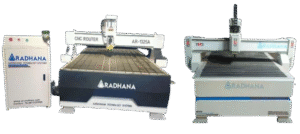In today’s fast-paced manufacturing the benefits of CNC machining in environment, precision, speed, and cost-effectiveness are more important than ever.
This is where CNC (Computer Numerical Control) machining comes into play. From aerospace components to intricate automotive parts, CNC machining has become a cornerstone of modern manufacturing processes.
Its ability to transform raw materials into precise components has revolutionized the industry. This article dives deep into the benefits of CNC machining, showcasing why it is a preferred choice for manufacturers worldwide.

CNC machining is a manufacturing process that uses computerized controls and machine tools to remove layers from a solid block of material—such as metal, plastic, or wood—to produce a custom-designed part. The process involves multiple types of machines, including lathes, mills, routers, and grinders, all of which are controlled by pre-programmed software.
Unlike manual machining, where human operators are responsible for operating the machinery, CNC machining automates the entire process, increasing accuracy and reducing the chance of human error.
To learn more about modern CNC machining solutions, you can visit Aaradhana Tech.

Let’s explore the major benefits of CNC machining that make it an indispensable tool in the manufacturing industry.
One of the most significant advantages of CNC machining is its ability to produce parts with extremely high precision. The computerized control ensures that each part is made exactly to the required specifications, with tolerances as tight as ±0.001 inches. This level of accuracy is almost impossible to achieve consistently through manual machining.
Industries like aerospace, medical devices, and automotive rely on CNC machines to produce components that must meet stringent quality standards. This precision also means less material waste and fewer reworks, contributing to cost-efficiency.
CNC machines can operate 24/7 without fatigue, breaks, or variations in quality. Once a design file is uploaded and the machine is set up, it can produce hundreds or thousands of identical parts with minimal supervision. This automation significantly reduces the time taken to complete manufacturing tasks compared to manual methods.
Moreover, the setup time is drastically reduced as tools can be changed automatically. This results in shorter lead times and faster turnaround, giving companies a competitive edge in the market.
For large-scale production, maintaining consistency across every piece is crucial. CNC machining ensures that each part produced is an exact replica of the original design, regardless of quantity. This repeatability is vital for industries where uniformity is non-negotiable, such as in electronics and defense manufacturing.
With CNC technology, manufacturers can guarantee the same quality and dimensions in every batch, enhancing customer satisfaction and product reliability.
Another remarkable advantage is CNC machining’s ability to work with a wide range of materials. Whether it’s aluminum, steel, brass, titanium, plastics, or composites, CNC machines can handle them all with the same precision and speed. This versatility makes it suitable for various industries with different material requirements.
Moreover, CNC machining can perform multiple operations—like drilling, milling, turning, and tapping—on a single setup, reducing the need for multiple machines and operations.
In traditional machining, human error is one of the biggest risks to product quality and worker safety. CNC machining reduces this risk significantly. Since the process is automated and controlled by a computer, there’s minimal manual intervention, thereby decreasing the chances of mistakes.
Additionally, operators do not need to be in close proximity to the cutting tools, which enhances workplace safety. CNC machines are enclosed, further reducing the risk of injury from flying debris or sharp tools.

CNC Machine Tools Market Share, Size And Growth Analysis 2034
Although the initial investment in CNC machines can be high, the long-term savings are considerable. Lower labor costs, minimal material waste, fewer errors, and faster production cycles contribute to a strong return on investment (ROI). For companies seeking scalability, the benefits of CNC machining offer a clear path to profitability and growth.
CNC machining is highly advantageous when it comes to prototyping and custom part production. Engineers can quickly turn a CAD design into a physical model to test functionality, fit, and design aesthetics. If modifications are needed, the CAD file can be easily updated and uploaded again, with minimal downtime.
This ability to quickly prototype and adjust designs is especially useful in research and development stages, where flexibility and speed are key.
To get a deeper understanding of how CNC machines can be integrated with automation for even greater results, check out this detailed article by Aaradhana Tech. It highlights how CNC automation is unlocking new levels of precision manufacturing and streamlining operations across industries.
Automation combined with CNC technology enables smart manufacturing, where machines communicate with each other, optimize production schedules, and deliver real-time performance insights.
With growing emphasis on sustainable manufacturing, CNC machining aligns well with eco-friendly practices. Reduced waste, efficient use of raw materials, and optimized energy consumption contribute to lower environmental impact. Companies that adopt CNC machining can also implement lean manufacturing principles more effectively, cutting down on both time and waste.
The benefits of CNC machining are evident across a wide range of industries:
The benefits of CNC machining are clear—it is a technology that drives precision, efficiency, and innovation across multiple industries. From creating a single prototype to mass-producing thousands of identical parts, CNC machining provides unparalleled consistency and reliability.
At Aaradhana Tech, we specialize in delivering CNC machining services tailored to your exact needs. Whether you’re in aerospace, automotive, or any other precision-driven industry, we help you unlock the full potential of CNC technology. Our state-of-the-art facilities, skilled team, and commitment to quality ensure that your components meet the highest standards.
If you’re looking to enhance your manufacturing capabilities, reduce costs, and increase output without compromising quality, it’s time to explore the benefits of CNC machining with Aaradhana Tech.
Click to talk with our CNC Machine Expert
This will close in 20 seconds